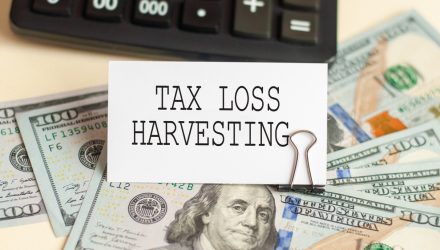By Vanya Sharma
Associate, Capital Markets
It’s not just all about capital gains boosting the bottom line. A smart and efficient investor focuses keenly on all the tools on hand, one of which is tax-loss harvesting. Tax-loss harvesting is a tax-engineering tool to mitigate both short-term and long-term tax liabilities. In other words, it allows one to minimize the impact of tax on a portfolio. It can also be used to reduce ordinary income taxes in a year with no capital gains, but this is only up to a loss of $3,000.
What Are the Mechanics of Tax-loss Harvesting?
Simply put, tax-loss harvesting entails an investor selling a security at a loss and buying another security of a similar investment profile. This will allow the investor to keep the portfolio’s positions roughly the same while simultaneously getting to deduct the loss from any gains for that year. Once the 30-day window has passed following the sale of the losing security, it can be repurchased, which would result in a lower tax basis.
How Does it Work with ETFs?
For starters, ETFs are cheaper than using stocks or mutual funds for tax-loss harvesting because of their reduced fees and less frequent capital gains distributions. ETFs make tax-loss harvesting easier by allowing one to avoid breaking SEC’s “wash-sale” rule. This simply dictates an investor may not repurchase an identical or notably identical security to the one being harvesting at a loss within the 30-day post-sale window. As ETFs are made up of baskets of securities, it’s easier to find ETFs that are identical in tracking objectives, e.g., large-cap or small-cap stocks, yet individual ETFs can avoid the SEC rule by following different underlying indexes.
Real-life Example
Investor A just sold 1,000 shares of a MAMAA company (Meta, Apple, Microsoft, Amazon and Alphabet). To preserve the diversity of the portfolio post-sale, Investor A chooses to take the sale’s proceeds and buys a larger tech industry focused ETF. This avoids the wash-sale rule without compromising portfolio’s the investment thesis and diversification.
It’s not Perfect
Tax-loss harvesting may yield in tax deferring at a later period than an actual tax break, which runs the risk of facing higher taxes in the future. But ultimately, it’s a smart way of minimizing the tax impact on your bottom line.
Originally published by WisdomTree on November 10, 2022.
For more news, information, and strategy, visit the Modern Alpha Channel.
U.S. investors only: Click here to obtain a WisdomTree ETF prospectus which contains investment objectives, risks, charges, expenses, and other information; read and consider carefully before investing.
There are risks involved with investing, including possible loss of principal. Foreign investing involves currency, political and economic risk. Funds focusing on a single country, sector and/or funds that emphasize investments in smaller companies may experience greater price volatility. Investments in emerging markets, currency, fixed income and alternative investments include additional risks. Please see prospectus for discussion of risks.
Past performance is not indicative of future results. This material contains the opinions of the author, which are subject to change, and should not to be considered or interpreted as a recommendation to participate in any particular trading strategy, or deemed to be an offer or sale of any investment product and it should not be relied on as such. There is no guarantee that any strategies discussed will work under all market conditions. This material represents an assessment of the market environment at a specific time and is not intended to be a forecast of future events or a guarantee of future results. This material should not be relied upon as research or investment advice regarding any security in particular. The user of this information assumes the entire risk of any use made of the information provided herein. Neither WisdomTree nor its affiliates, nor Foreside Fund Services, LLC, or its affiliates provide tax or legal advice. Investors seeking tax or legal advice should consult their tax or legal advisor. Unless expressly stated otherwise the opinions, interpretations or findings expressed herein do not necessarily represent the views of WisdomTree or any of its affiliates.
The MSCI information may only be used for your internal use, may not be reproduced or re-disseminated in any form and may not be used as a basis for or component of any financial instruments or products or indexes. None of the MSCI information is intended to constitute investment advice or a recommendation to make (or refrain from making) any kind of investment decision and may not be relied on as such. Historical data and analysis should not be taken as an indication or guarantee of any future performance analysis, forecast or prediction. The MSCI information is provided on an “as is” basis and the user of this information assumes the entire risk of any use made of this information. MSCI, each of its affiliates and each entity involved in compiling, computing or creating any MSCI information (collectively, the “MSCI Parties”) expressly disclaims all warranties. With respect to this information, in no event shall any MSCI Party have any liability for any direct, indirect, special, incidental, punitive, consequential (including loss profits) or any other damages (www.msci.com)
Jonathan Steinberg, Jeremy Schwartz, Rick Harper, Christopher Gannatti, Bradley Krom, Kevin Flanagan, Brendan Loftus, Joseph Tenaglia, Jeff Weniger, Matt Wagner, Alejandro Saltiel, Ryan Krystopowicz, and Brian Manby are registered representatives of Foreside Fund Services, LLC.
WisdomTree Funds are distributed by Foreside Fund Services, LLC, in the U.S. only.
You cannot invest directly in an index.








